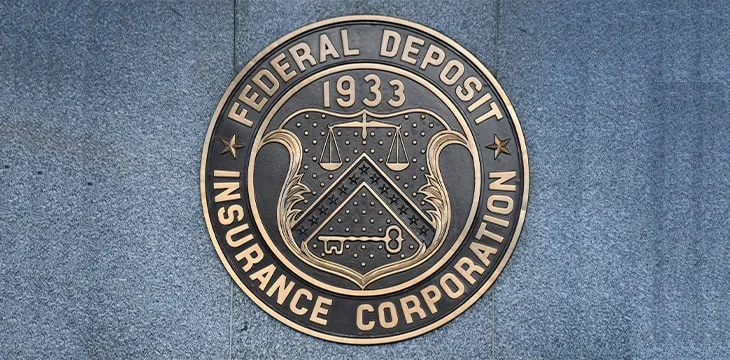|
Getting your Trinity Audio player ready...
|
Federal insurance in the United States only covers deposits held in insured banks and savings associations and doesn’t protect against digital asset firms and other non-bank entities, the Federal Deposit Insurance Corporation (FDIC) has clarified.
In a new fact sheet published on July 29, the regulator pointed out that some digital asset companies have been misleading users about their FDIC coverage.
While it didn’t explicitly state the name of the company, the FDIC was referring to Voyager Digital, a digital asset lender that recently filed for Chapter 11 bankruptcy. Voyager had been claiming to be FDIC-insured before its collapse due to its tie-up with a New York bank, a claim that it was ordered to cease and desist from by the FDIC.
Founded in 1933, the FDIC insures depositors in American depository institutions. In the event that an insured bank fails, the agency ensures every depositor up to at least $250,000. It claims that no depositor has lost a penny of FDIC-insured funds since its establishment 89 years ago.
However, its protection only covers banking institutions, as clarified in the fact sheet. The insurance doesn’t extend to stocks, bonds, money market funds, commodities, and definitely not to digital assets, it stated.
“FDIC insurance does not protect against the default, insolvency, or bankruptcy of any non-bank entity, including crypto custodians, exchanges, brokers, wallet providers, and neobanks,” the fact sheet reads.
The agency also doesn’t protect against losses due to theft or fraud.
The latest push also demanded that banks ensure that digital asset firms they partner with don’t overstate the extent of FDIC’s coverage.
“Inaccurate representations about deposit insurance by non-banks, including crypto companies, may confuse the non-bank’s customers and cause those customers to mistakenly believe they are protected against any type of loss,” it said in an advisory to banks.
In the Voyager Digital case, the lender had partnered with New York-based Metropolitan Commercial Bank (MCB). While the bank is insured, Voyager wasn’t, but it still explicitly told its clients that it was. MCB would later deny any links to Voyager’s FDIC insurance, but this was months later, and the lender had managed to use this claim in its marketing materials.
Moving forward, the FDIC will require VASPs to clearly state that they aren’t FDIC-insured, name the insured bank with which they hold their customer funds, and let their users know that the FDIC doesn’t cover digital assets.
Watch: The BSV Global Blockchain Convention presentation, Trust But Verify: Everything
https://www.youtube.com/watch?v=UDcBacjXq4Q

 09-08-2025
09-08-2025 





